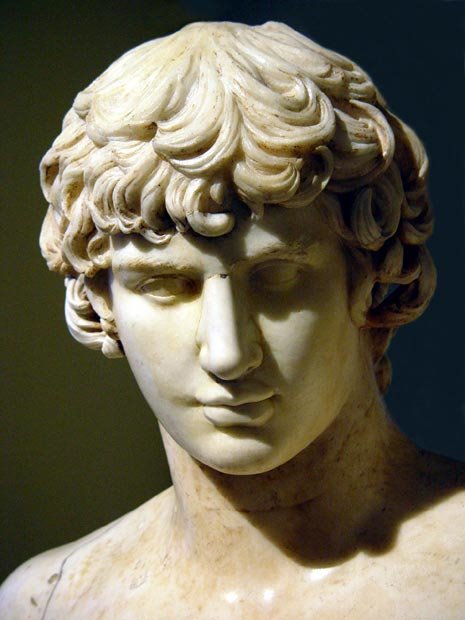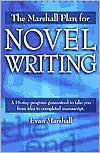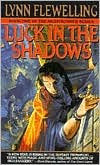Saturday, July 22, 2006
Working on Scene Structure
I had a goal when I started work on my recently set-aside novel, HARRY VS. THE TRUCK, to work on goal/complication/resolution patterns, making sure each scene had a very clear goal for the point-of-view character. I feel this mindset has stuck well enough by now: I've internalized it, and am fairly consistent now as I strive to apply it at all times. As I approach the editing of Chapter 4 of THE REFLECTING STONE, I am focusing on other details of scene structure to continue and refine that focus. In particular, I am trying to get a handle on the concept of action/reaction sequences.
While it is important for the writer to know clearly the POV character's reactions to each setback or complication along the way, it is not necessary, as I understand it, to actually express that in a distinct scene in every case. If the stakes were high in the action scene, the defeat or twist particularly difficult for the POV character, then it is important to show the character's struggle with the undesired outcome and the process of moving from emotional reaction to rational thought to decision making as a new course of action is chosen. However, if the reaction is obvious, and can be shown "along the way", the essential elements of the reaction (emotion, reflection, decision) can be expressed without drawing significant attention to them, even in a very short space such as a sentence or even just a phrase, and can even be ommitted and fully implied, because they are in fact obvious.
Disclaimer as I apply this focus on action/reaction sequences: As I mentioned in the last posting, I am focusing on the characters having their own agendas, their own goals, and allowing them room to pursue their lives in whatever way they feel is best for them. I keep my goals as the writer separate from the characters' goals, and try to work them in without interfering with the clear development and expression of the characters' own desires, needs, wants, etc. The characters are experiencing the story, living it directly. I am watching from a distance, giving them a nudge here or there.
Some specifics....
I found one scene in Chapter 4 where there is a transition from one location to another. The main character is being held prisoner and must escape. That's my goal, but more importantly it is his goal. His life depends on it. As previously written in the current draft, he did a minor amount of reflection while in captivity about the events of the preceding chapter, which resulted in his present predicament. He escaped, then made his way to a new location to distance himself from his captors.
In the editing, I recognized the need here for more significant reflection. In essence, his old life is now being left behind, and he is taking steps toward his future, unlocking the course of his destiny, bit by bit, though he does not know what it will be. The events of the previous chapter were enormous in their emotional impact on him. This is one of the few really key points in the story where a longer reaction scene is in fact fully justified. My focus on action/reaction sequences and scene structure helped me to see that and correct it.
Another issue that came up in the editing is the transition between locations. The character escaped and set out for a new destination, but I took that as a matter of course in the previous draft and did not show more reflection than enough to establish his basic plan to get away, and in which direction, with what general goal for his safety. I realized there was in fact a choice to be made here, one that touches back on foreshadowing from earlier chapters. I allowed for a continuation of the reaction during his escape, so that he pauses literally where there is a fork in the road and considers which route to take. This brings the focus back squarely to major story questions, which must be done periodically.
I think the expansion of the reflection in two places in this chapter were needed, and the story is much stronger now. This also provides the reader with a chance to get into the character's head, to better understand what he is dealing with, and his personality as revealed in how he solves problems, deals with his emotions, plans for future actions. Hopefully, the reader will be able to identify more the with character in some sense, and will feel closer to him.
The only drawback has been a pattern I noticed in the writing phase over the past several months: the more I work with the same section of text, the more I lose my objectivity about it, until I can no longer tell if it's any good or not. I'm seeing the need in the editing to avoid going back over the same text too many times, and not to go back and reread earlier chapters. I just need to keep moving forward, and read only as many times as I need to until I get the elements in the text that need to be there, and the section seems to read well enough. I should then let the newer version sit, move on and edit new segments, and later come back to reread and polish. I'm really just trying to catch the bigger stuff on this first run-through, and will certainly go back through it all again a few more times before I'm through.
I put in several hours of work editing Chapter 4 and am still only about 25% of the way into this chapter. I remember back in January, February and March that when I slowed down to edit the first three chapters, it likewise was slow going at times. I think I do have to read over problem areas several times and play with the text, changing this, changing that, trying this version, then another, each time the changes giving me something new to think about. It takes time sometimes to explore a scene in-depth and really find all the material that is there to work with. It's not necessary to explore every possibility in the final text, but I think it's important to explore all the possibilities you can find so that you can discover important things that you might have missed. Sometimes we overlook the obvious, and it takes a while to see what was sitting in front of us all along. In any event, quality first! I'll take whatever time I need to do this right, while trying to work as quickly as I can.
Adrian
Subscribe to:
Post Comments (Atom)








No comments:
Post a Comment